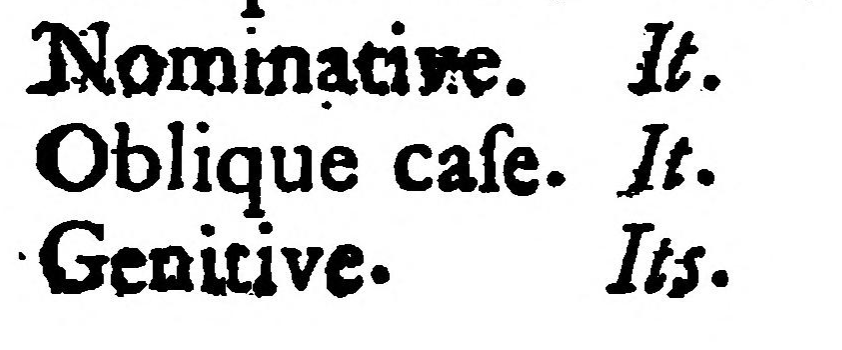I know that its is the possessive and it's is the contraction, and know when to use them. But why doesn't the possessive have an apostrophe?
- "The bear's eating a fish." [contraction]
- "The bear's coat is brown." [possessive]
- "It's eating a fish." [contraction]
- "Its coat is brown." [possessive]
- "One's eating a fish." [contraction]
- "One's coat is brown." [possessive]
Wiktionary lists the etymology as "From it + 's", and Online Etymology Dictionary says that this is actually the original form:
Originally written it's, and still deliberately spelled thus by some writers until early 1800s.
So what happened to the apostrophe? When did people stop using it, and why did they?
It seems that it's as the possessive is more natural, as most people do this until they're taught that it is wrong (or even after).
Update: Online Etymology Dictionary has been updated to include two potential explanations:
The apostrophe came to be omitted, perhaps because it's already was established as a contraction of it is, or by general habit of omitting apostrophes in personal pronouns (hers, yours, theirs, etc.).
Can anyone back up either of these arguments? The possessive one's still has the apostrophe, despite these.






